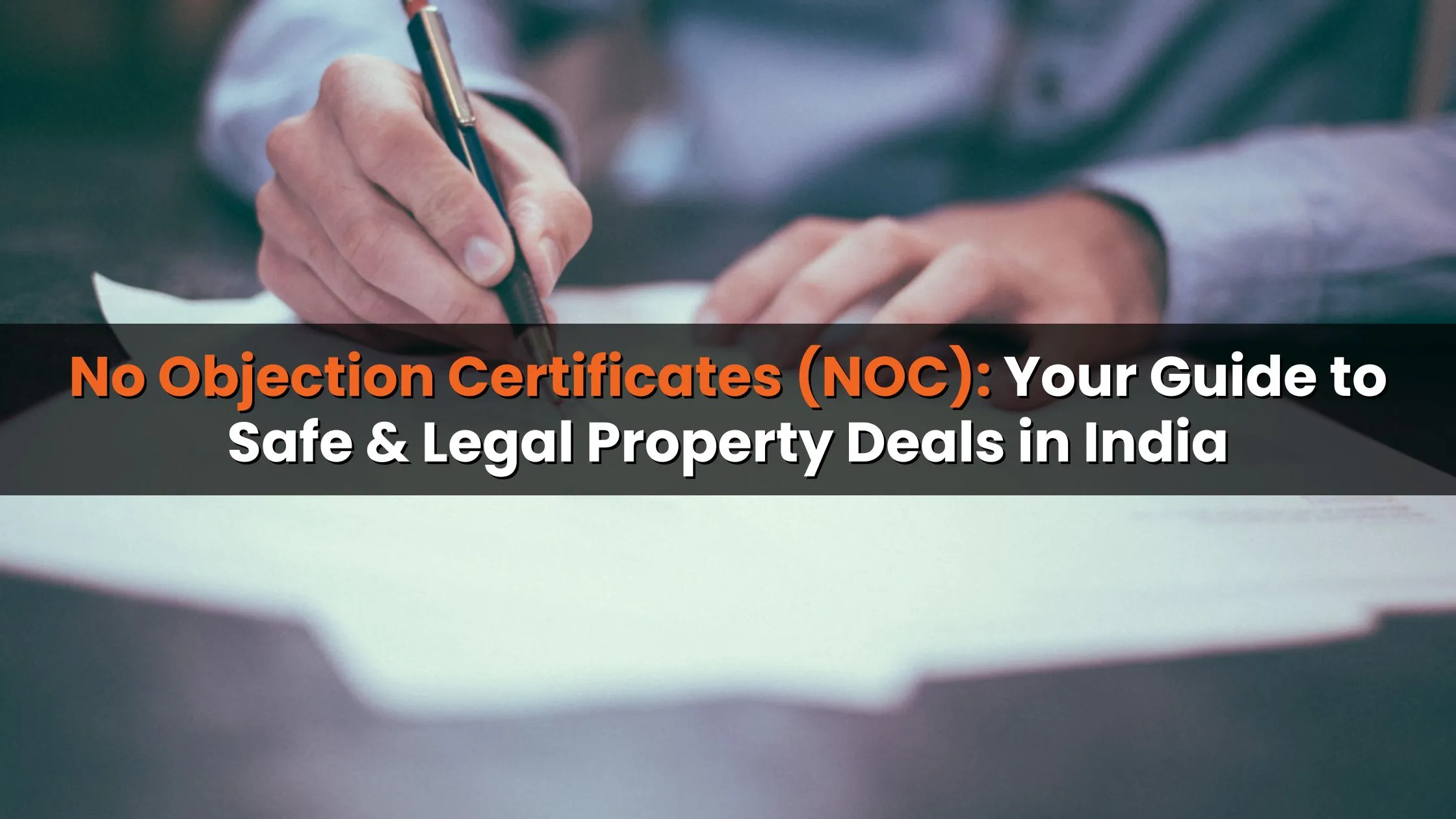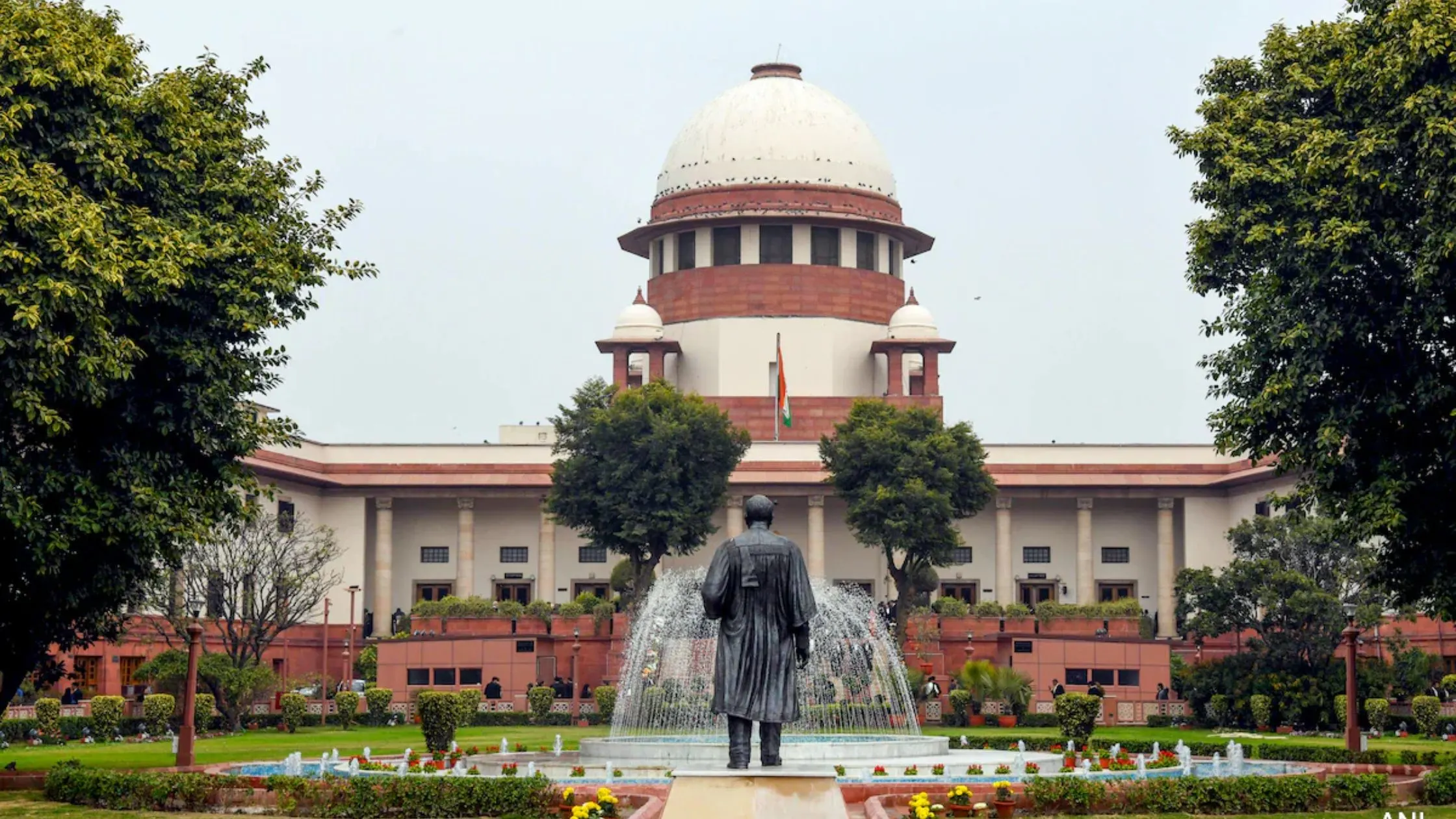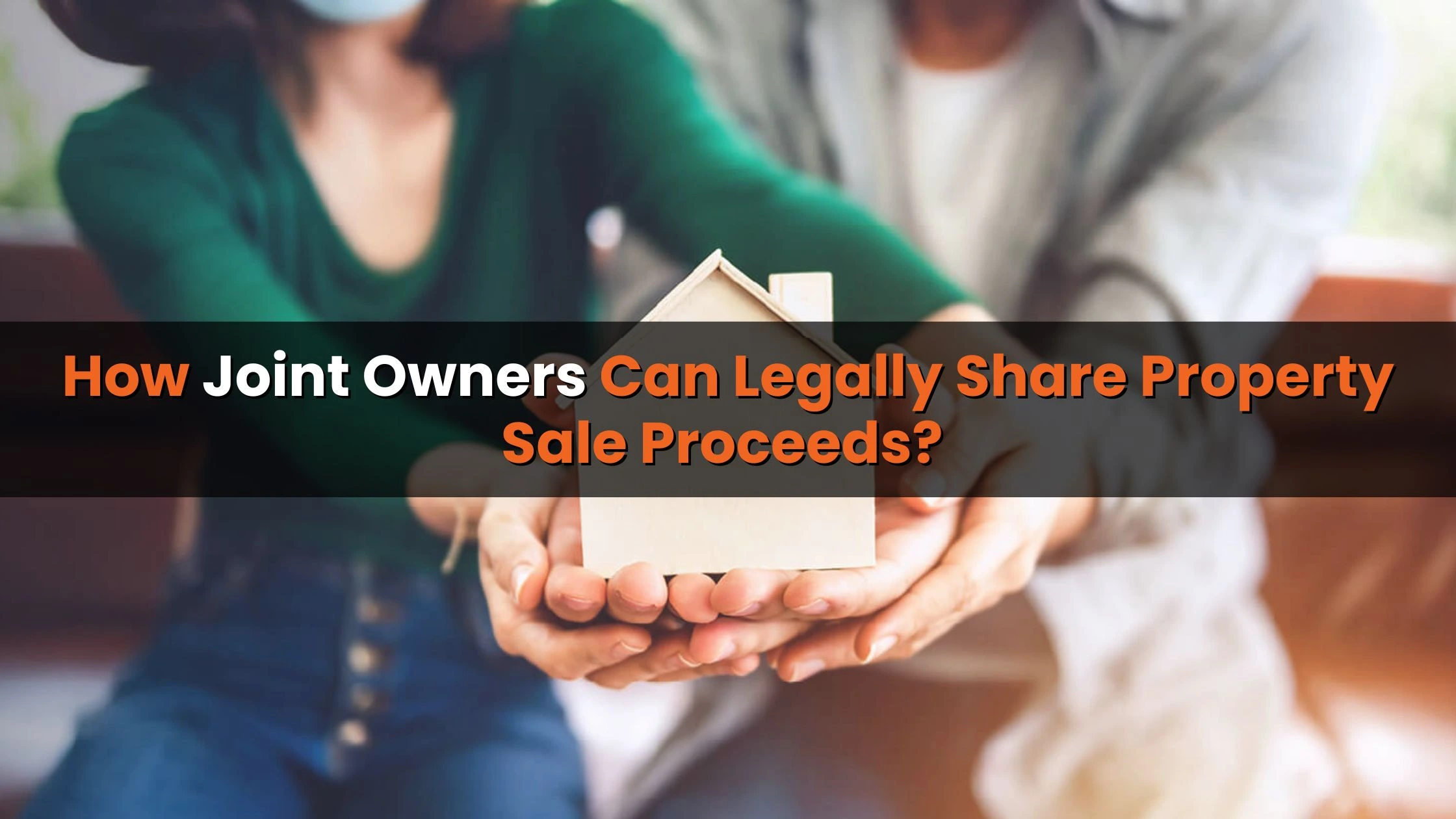Table of Content
▲- What Is a No Objection Certificate (NOC)?
- Why a NOC Is Required in Property Transactions
- Key Situations Where a NOC Is Mandatory
- Types of No Objection Certificates (NOC) in Real Estate
- Documents Required to Obtain a NOC
- Procedure for Obtaining a NOC
- Legal Consequences of Not Having a NOC
- Practical Tips Before Requesting or Accepting a NOC
- Conclusion
Buying or selling a property in India can be exciting, but it comes with its fair share of paperwork. Amid all the agreements, sale deeds, and bank forms, one document stands out as a crucial safeguard: the No Objection Certificate (NOC).
From my experience, skipping this step or not fully understanding it can turn a smooth property transaction into a legal headache. Simply put, a No Objection Certificate (NOC) ensures that a property is free from disputes, unpaid dues, or restrictions, allowing the transfer to happen safely and legally. In this article, I’ll break down everything you need to know about NOCs, step by step.
What Is a No Objection Certificate (NOC)?
A No Objection Certificate (NOC) is an official document issued by a competent authority confirming that it has no objection to a particular transaction or transfer of property.
In real estate, this means the property is legally clear, free from liens, unpaid taxes, disputes, or other encumbrances, and can be transferred, sold, or registered without any legal hurdles. While NOCs exist in other areas, such as employment, education, or visa applications, in property deals, they act as the primary proof of legal safety for both buyers and sellers.
Also Read: Liquidated Damages Explained: The Key Clause That Protects Homebuyers
Why a NOC Is Required in Property Transactions
Property transactions in India involve multiple parties: buyers, sellers, builders, banks, housing societies, and sometimes government authorities. A No Objection Certificate (NOC) acts as a green signal, ensuring that no party has pending objections or rights over the property.
Here’s why NOCs are essential:
- Verification of Legal Ownership: Confirms that the seller is the rightful owner.
- Protection from Financial Liabilities: Ensures there are no pending dues such as property taxes, maintenance charges, or loans.
- Regulatory Compliance: Certain transactions require NOCs to comply with municipal, SEZ, or SEBI regulations.
- Transparency for Buyers: Builds confidence that the property is legally sound.
- Avoidance of Legal Complications: Prevents delays during registration and avoids future disputes or litigation.
Without a proper NOC, even a straightforward property deal can face serious legal and financial hurdles.
Key Situations Where a NOC Is Mandatory
Not every property transaction requires the same NOC. Here are the common scenarios:
1. Buying from a Builder (First Sale)
When purchasing a new property, the builder must issue a NOC confirming there are no pending dues, loans, or litigations. This protects the buyer’s legal rights and ensures smooth registration.
2. Resale of Property
For resale transactions, the housing society usually issues an NOC stating that all maintenance fees, electricity bills, and other charges are cleared. Without this, the property registration can be rejected.
3. Bank Mortgage or Loan Closure
After paying off a home loan, the bank issues a NOC confirming that the lien on the property has been removed. This ensures free transfer of ownership and prevents future claims from the lender.
4. Government or Leasehold Property Transfers
Properties on government-allotted or leasehold land need an NOC from the relevant authority to comply with urban development and land-use rules.
5. Power of Attorney-Based Transfers
In cases where property is transferred through a Power of Attorney, a notarized NOC validates the transaction and protects both parties legally.
6. Property Transfers Within Family
Even in inheritance or family settlement cases, obtaining NOCs from all legal heirs prevents disputes and clarifies ownership.
7. Employment-Linked Housing Transfers
For properties provided by employers, an employment NOC confirms eligibility for ownership transfer after resignation or retirement.
Types of No Objection Certificates (NOC) in Real Estate
Depending on the situation, you may encounter various types of NOCs:
- Builder NOC: Confirms all dues to the developer are cleared.
- Bank NOC: Issued after loan repayment or mortgage release.
- Society NOC: Verifies that maintenance charges or disputes are cleared.
- Government / Municipal NOC: Required for leasehold or authority-owned land.
- Legal NOC: Needed for inheritance, dispute resolution, or litigation cases.
- Employment NOC: For job-linked housing schemes.
- Regulatory NOC: Required for SEBI or other regulatory-linked properties.
Each type serves a distinct purpose, collectively ensuring a clean, dispute-free property title.
Documents Required to Obtain a NOC
Typically, you’ll need the following documents to apply for a No Objection Certificate (NOC):
- Sale deed or agreement to sell
- Proof of ownership
- Property registration certificate
- Loan closure receipts (if applicable)
- Identity proof of owner(s)
- Latest property tax receipts
- Builder’s allotment or possession letter
- Society maintenance clearance
- NOC from the previous owner or lender
- Written application to the issuing authority
These documents allow authorities to verify that the property is free from legal or financial liabilities before issuing the NOC.
Procedure for Obtaining a NOC
Here’s a simple step-by-step process:
- Submit an Application: File a formal request with details of the property and the reason for the NOC.
- Attach Documents: Include all relevant proofs, tax receipts, and clearances.
- Pay Fees: Nominal fees vary by state and issuing authority.
- Verification: The authority checks ownership, dues, and compliance.
- Issuance: Once verified, the NOC is granted, and sometimes available online as well.
Always keep both physical and digital copies for future resale or legal verifications.
Legal Consequences of Not Having a NOC
Skipping a NOC can lead to serious consequences:
- Delays or cancellation of property registration
- Legal notices or disputes from authorities or prior owners
- Difficulty obtaining a mortgage or bank loan
- Repossession risks if the property has an unclosed lien
- Penalties or even imprisonment under municipal laws in major states like Maharashtra, Karnataka, or the Delhi NCR
In short, not having a valid NOC can turn a legal property transaction into a long and costly problem.
Also Read: Section 54F of the Income Tax Act: Tax Exemption on Long-Term Capital Gains (LTCG)
Practical Tips Before Requesting or Accepting a NOC
- Verify all outstanding dues are cleared
- Check the issuing authority’s authenticity
- Ensure the document is signed and stamped
- Confirm NOC validity and date
- Retain multiple copies for safety
- Ask for clarifications if any clause is unclear
A few minutes of careful checking today can save you months of legal hassle tomorrow.
Conclusion
From my experience in property transactions, No Objection Certificates (NOC) are one of the most important documents to ensure a smooth, legal, and safe property deal in India. Whether you are a first-time homebuyer, investor, or seller, understanding and securing the right NOC protects you from disputes, unpaid dues, and legal complications.
Before buying, selling, or transferring property, always verify the NOC, retain copies, and don’t hesitate to clarify any doubts. This small step today can make your property journey much safer and stress-free.


_1770964981.webp)







_1770976628.webp)
Ans 1. A NOC is an official document issued by a competent authority confirming that the property is legally clear, free from disputes, unpaid dues, or restrictions, and can be sold, transferred, or registered without legal issues.
Ans 2. A NOC ensures legal ownership verification, protects buyers from unpaid dues or liens, confirms regulatory compliance, and prevents future disputes or delays during property registration.
Ans 3. Depending on the transaction, NOCs can be issued by builders, banks, housing societies, government authorities, or employers (for job-linked housing).
Ans 4. Builder NOC, Bank NOC (loan closure/mortgage release), Society NOC (maintenance clearance), Government/Municipal NOC, Legal NOC (inheritance or dispute resolution), Employment NOC, Regulatory NOC
Ans 5. Common documents include the sale deed, proof of ownership, property registration certificate, loan closure receipts (if applicable), identity proof, tax receipts, builder allotment letter, and a written application.
Ans 6. Submit a formal application with required documents to the relevant authority, pay nominal fees, complete the verification process, and obtain the NOC either physically or online.
Ans 7. While technically possible, skipping a NOC can lead to registration delays, legal disputes, or rejection, especially for resale, mortgage release, or government property transfers.
Ans 8. Consequences may include legal disputes, bank loan rejections, potential repossession, registration delays, and penalties under municipal or state laws.
Ans 9. Yes, housing societies typically issue a NOC confirming that all dues, maintenance charges, and bills are cleared before resale registration.
Ans 10. Yes, banks issue a NOC confirming that the mortgage lien is cleared, allowing free transfer of property ownership.
Ans 11. Validity depends on the issuing authority. It is recommended to check the issue date and retain multiple copies for future legal or resale purposes.
Ans 12. Some states and banks offer digital copies or online verification of NOCs through their official portals. Always keep both physical and digital copies for safety.